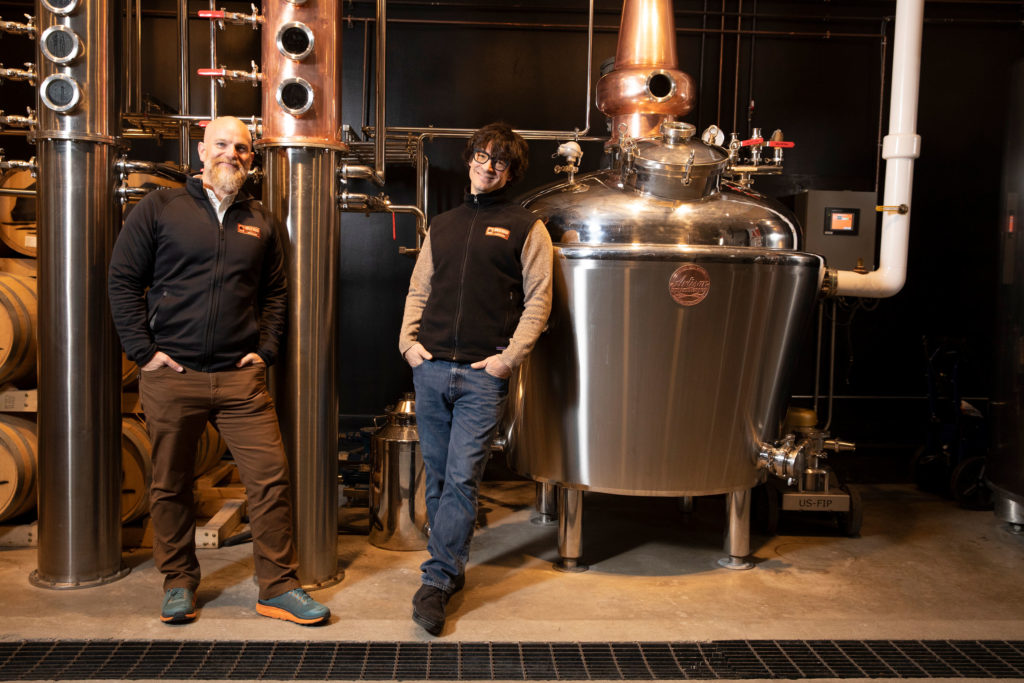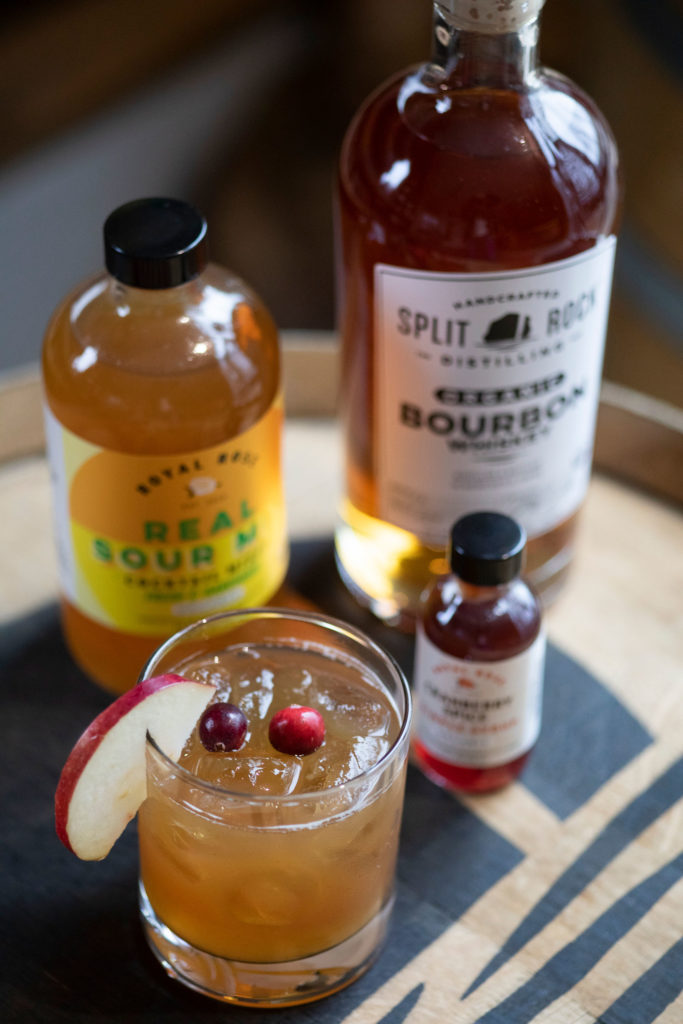Distinctively Different
At Split Rock Distilling in Newcastle, organic is just part of the story.

Split Rock Distilling had me at horseradish vodka. A spicy, earthy, surprisingly tasty spirit that seems tailor-made for a Bloody Mary but is even better appreciated sipped neat or as an oyster shooter (ice-cold in both cases), the unusual vodka is one example of the ways in which Split Rock is doing things differently.
Owners Topher Mallory (who is also CEO of Mexicali Blues) and Matt Page launched Maine’s first organic distillery three years ago with no distilling experience but with a clear mission. “Early on we vowed not to sell anything we didn’t make ourselves,” says Page. They gutted an old red barn off Route 1 in Newcastle, devoting most of the space to distilling equipment, including a gleaming copper and stainless-steel pot still. They left just enough square footage up front for a small tasting room, where a wall of plaques pays tribute to the family and friends who helped along the way. A 5,000-square-foot addition is underway that will largely be used for storage for both the distillery and a related business Mallory and Page purchased in 2018, Royal Rose Organic Syrups.

Split Rock’s spirits are also all certified organic, starting with grains from Champlain Valley Milling in upstate New York. The spent mash (the grain left after the liquid has been strained off) feeds the dairy cows of Newcastle organic farmer Lee Straw. “We wanted to be part of that whole farm-to-table relationship—full circle,” says Mallory. “We spent weeks on the phone looking for an organic farmer who could grow enough horseradish for us,” says Page. Tom Roberts of Snakeroot Organic Farm in Pittsfield answered the call, and now provides all of the root vegetable used by the distillery.
In addition to the horseradish vodka, Split Rock makes a blueberry vodka using wild Maine blueberries for a flavor that perfectly evokes the sweet-tart complexity of the tiny fruit, as well as “plain” vodka, gin, bourbon, white whiskey, and a barrel-rested gin. Last month, Mallory and Page released Maine’s first organic straight bourbon whiskey (by law, straight bourbon must be aged in charred new oak barrels for at least two years). Page siphons a sample from one of the barrels for me to taste, and it is everything I love about good bourbon: rich and warm with a smooth mouth-feel, even at full strength. While the bourbon would make a fine cocktail, I’d enjoy it on its own, perhaps with a single ice cube to open up the flavors. As for the horseradish vodka, Page offers an “epic dirty martini” recipe: shake the vodka with ice (and perhaps a splash of dry vermouth), strain, and serve with a garlic-stuffed olive skewered on a sprig of fresh rosemary. I can attest that the herbaceous, zingy drink is not only different but also delicious.

